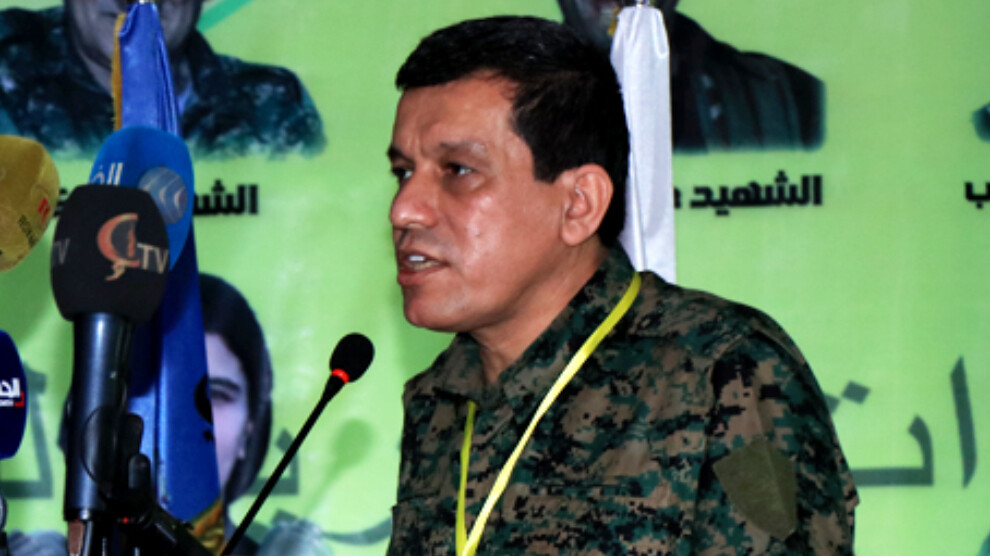SDF Commander Mazloum Abdi stresses need to liberate occupied areas
The Syrian Democratic Forces released a statement after their annual meeting in Heseke.
The Syrian Democratic Forces released a statement after their annual meeting in Heseke.

The SDF released a statement after the annual meeting of its military councils in Heseke.
The statement underlined that the meeting was held in the presence of SDF Commander-in-Chief Mazloum Abdi, U.S. Joint Task Force Commander Paul T. Calvert, and representatives of all SDF military councils and institutions.
The statement said. "The meeting discussed the military and political situation and the achievements of the SDF in the region as well as the possibilities available for the development of military forces to liberate the occupied areas and continue to fight Daesh to eliminate it once and for all."
During the opening speech, SDF Commander-in-Chief General Mazloum Abdi stressed that in the past two years, the region has been subjected to a series of attacks by Turkey, but with the support of our people and friends and with the sacrifice of our fighters, we were able to confront them. Abdi remembered all the martyrs who brought the SDF to this stage.
The statement added that "Abdi stressed the need to liberate the occupied areas and create favorable conditions for the return of the displaced people, in addition to emphasizing the issue of fighting Daesh, and he also noted that the terrorist organization still poses a threat to the region and the world, so the strong partnership with the international coalition will continue to fight and eliminate this organization once and for all."
Abdi pointed out that the fight against the organization is not done only by military methods and therefore the Autonomous Administration must be supported to rebuild the destroyed infrastructure and improve the living condition of citizens as well as support its efforts and its service and political projects as an integral part of the SDF’s program to fight the ISIS terrorist organization.
Abdi expressed deep regret that the United Nations was unable to open the border crossings in the north and eastern Syria and stressed the need to open them to deliver humanitarian aid to the region.
He also stressed that the SDF has done a great job in confronting Daesh cells by protecting the prisoners of the terrorist organization and their families, and he pointed out that the potential of Autonomous Administration is not enough in this regard calling on the international community to support and assist it to return detainees and their families to their countries.
General Mazloum welcomed the U.S. step to impose sanctions on the Ahrar al-Sharqiya militia, calling for accountability for their partners from other factions.
On the other hand, General Mazloum Abdi stressed that the Syrian Democratic Forces continue to work with Russian forces to maintain security and de-escalate tension in the areas of north and eastern Syria, calling on Russia to put pressure on the Syrian government for dialogue, and he noted that it was the Syrian Democratic Forces that maintained the Syrian areas when the Syrian regime abandoned them to terrorist gangs such as Daesh and Al-Nasra.
The statement by the SDF also added that "US Joint Task Force Commander Paul T. Calvert said he continues to support the SDF and maintain joint action between the two parties until Daesh cells are terminated."
During the meeting, the military and ground situation was discussed and the rules of proceeders were approved, in addition to issuing several resolutions concerning the structure of the SDF and the activation of its military institutions.
Aram Henna was also elected as the new SDF spokesman in place of Kino Gabriel.